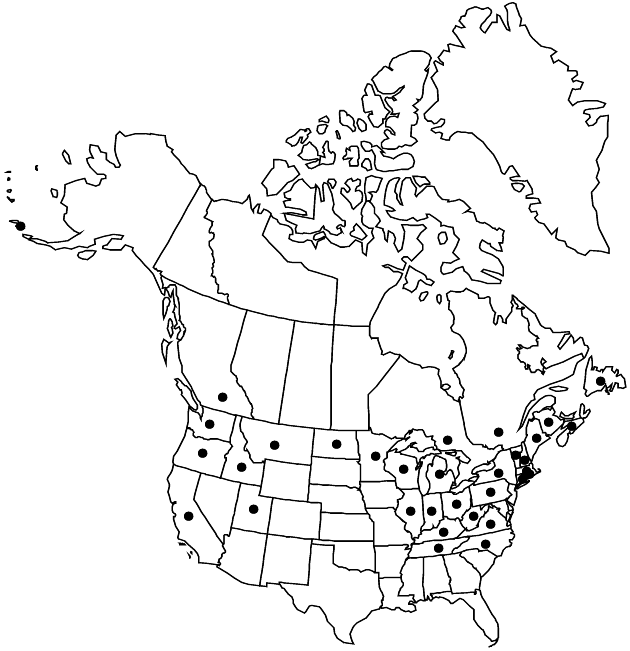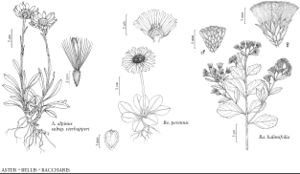Bellis perennis
Sp. Pl. 2: 886. 1753.
Rhizomes short, erect, herbaceous. Leaves: petioles winged, equaling or longer than blades; blades 6–40 × 4–20 mm, bases ± attenuate, apices rounded. Peduncles lax, (3–)5–15(–20) cm. Phyllaries: margins ciliolate, particularly distally, apices obtuse. Ray corollas 4–8(–11) mm. Disc corollas 1.5 mm. Cypselae 1–2 mm. 2n = 18.
Phenology: Flowering spring–summer.
Habitat: Lawns and moist, waste places, roadsides
Elevation: 0–500+ m
Distribution

Introduced; B.C., N.B., Nfld. and Labr. (Nfld.), N.S., Ont., Que., Alaska, Calif., Conn., Idaho, Ill., Ind., Ky., Maine, Mass., Mich., Minn., Mont., N.H., N.Y., N.C., N.Dak., Ohio, Oreg., Pa., R.I., Tenn., Utah, Vt., Va., Wash., W.Va., Wis., Europe, Asia, Pacific Islands (Hawaii, New Zealand), introduced in South America.
Discussion
There is an old report of Bellis perennis from St. Pierre and Miquelon; it is not established there. It might not have persisted in Alaska. The species is used in homeopathic medicine, as a tea and as a vitamin supplement. It is also a widely planted ornamental.
Selected References
None.
